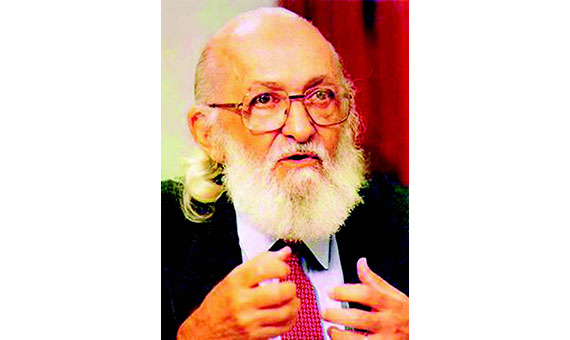Azadi ka Amrit Mahotsav Kolkata event honours four Clergymen
Pope Francis asks businesses to support working women: They’re ‘afraid to get pregnant’
Study: Christianity may lose majority, plurality status in U.S. by 2070
Indian politician declines Magsaysay Award under party pressure
Like John Paul II, Pope Francis heads to Kazakhstan during time of war

I have been deeply marked by the vision of education proposed by the Brazilian author Paulo Freire (1921-1997) in his most reputed work, The Pedagogy of the Oppressed. Freire was very much apprehensive of the existing system of education which is similar to depositing money in a bank. In the bank-deposit model the students are like containers into which the educator invests pieces of information. The data placed in the students brings forth interest on the basis of students’ capacity to make use of it in his life. Freire was dissatisfied with this method because it is mechanic and static. Here, the teacher considers the lesson as a cognizable object and the students as passive subjects who are supposed to memorize the dead content.
Freire had a creative perspective about the very process of education. He viewed teaching as a medium that evokes critical reflection from the part of both the teacher and the student. He believed that the dialectical approach will constantly reform the reflections of the professor in the reflections of the students. The students are no more mere docile listeners. They are makers of sublime wisdom. They are co-investigators in the pursuit of truth. The teacher is constantly challenged by the students to reconsider his/her baggage of information. The dialectical method leads to a constant unveiling of the truth whereas the banking system of education anesthetize the students as well as the teacher. For that very reason Paulo’s approach can be called a pedagogy of empowerment. He observes that through dialogue, the teacher of the students and the students of the teacher will cease to exist and a new dialectic of teacher-student and students-teacher relationship will emerge. The teacher is no longer merely the one who teaches but one who is himself taught in conversing with the students. Similarly, the students become jointly responsible in learning while being taught by the teacher.
I feel that the dialectics of student-teacher will really take place only when we accept the down to top approach. For centuries we have been depending on the top to down approach in teaching. With regard to the theological education we have the following steps: a) we begin with the biblical foundation, b) the reflections of the major theologians like Augustin, St Thomas and Karl Rahner or another veteran of the modern era, c) Magisterium and d) Practical application. This logic presumes that the truth is in the hands of the teacher and it is enough that the students assimilate it and put into practise later in their life.
The above said logic has to be reversed. Instead of reading from the Scriptures we begin with the concrete experiences related to the subject of study. The easiest way to begin with the realities is to carry on the empirical studies including field study. The next step is to formulate meaningful questions on the topic in the light of the result of the field study. The following step is to research on how did Jesus dealt with similar cases or issues at his epoch. Fourthly, the apprentices can be invited to reflect on how Jesus would deal with the subject if he lives in our context. Finally, a project of actions which will lead to a better social living in the world.
Following this bottom to top approach the result of education would be certainly different. If the students doing theology are given chance to collaborate with the human right organisations in their protest against injustice done to the marginalised, that will definitely better their understanding of Jesus, the meaning of his activities. In Christus vivit, the Pope Francis advises the educators to use the appealing ways like sports, competition, text messages, songs, videos, etc. (no. 210). He continues, ‘Rather than being too concerned with communicating a great deal of doctrine, let us first try to awaken and consolidate the great experiences that sustain Christian life” (no. 213). “Any programme of youth ministry should clearly incorporate various means and resources that can help young people grow in fraternity … to be of service to others, to be close to the poor” (no. 215).
Kundu1962@gmail.com
Leave a Comment